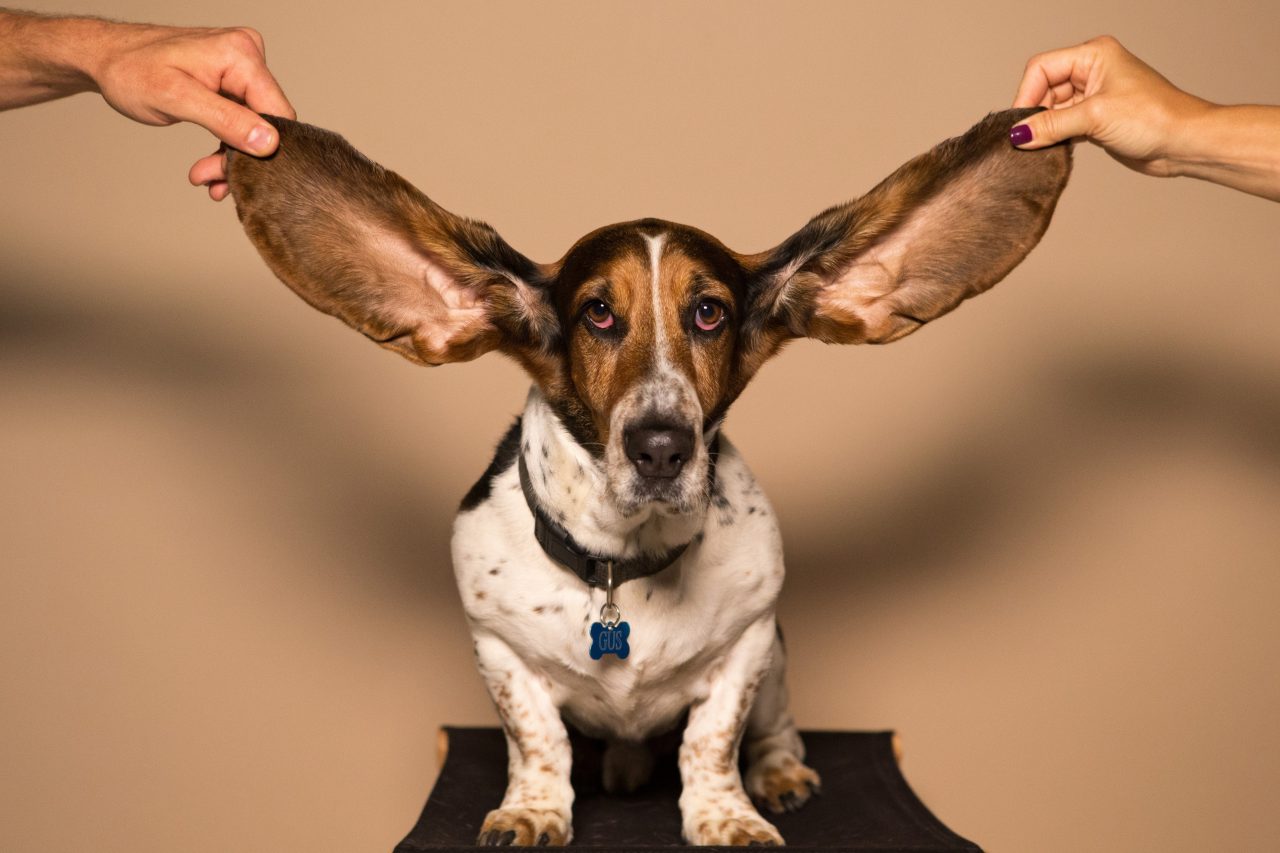
Though some canine health-issues are breed-specific, there are many health problems that can affect any dog. Here are some of the most common dog health issues to watch out for in your pets.
Obesity

Much like humans, obesity has become an epidemic with domestic dogs. And just as with humans, carrying excess fat can cause serious health problems for dogs. Your vet is the most qualified to tell you if your pet is overweight or obese and will do so by checking their body composition. Bodyweight more than 10 to 15 percent over the recommended amount means a dog is obese. Obesity in dogs can cause problems with bones and joints, digestive organs, breathing organs and the circulatory system, leading to a shortened life span and lower overall quality of life.
Controlling your dog’s food intake and slowly incorporating additional exercise into your pup’s routine can help them shed excess pounds. Be sure to check with your vet before making any dietary or lifestyle changes for your pet. Abrupt changes to food or exercise can actually cause additional problems if your dog isn’t healthy enough for the change.
Ear Problems

If you notice your dog shaking his head or scratching at his ears, it might be a symptom of a common ear condition. Other symptoms can include odor or discharge from the ears, dry or scaly skin, or swelling. The three most common ear problems for dogs that aren’t related to an injury include bacterial infections, yeast infections, and mites.
Bacterial Infections
The most common type of bacterial ear and skin infections in dogs result from strains of staph. The type of staph that affects canines isn’t transmittable to humans but can be very uncomfortable for your pet if it goes untreated. Your vet may recommend either antibiotic or non-antibiotic treatment, depending on the type, severity, and location of the infection. When properly addressed, this condition should clear up in a matter of weeks.
Yeast Infections
When a dog’s ear infection is due to an abundance of yeast, rather than bacteria, an allergic reaction is usually the culprit. These infections are treated with anti-fungal medications and should clear up in a matter of weeks. If your dog gets recurring yeast infections, it may be a sign that you need to make a change in their diet.
Mites
Mites are microscopic insects that infect dogs and cats, as well as foxes and ferrets. Cats can be especially prone to getting ear mites, so dogs who are around cats regularly have a higher chance of contracting the parasites. Mites are usually easily treated with anti-parasitic medications in the form of drops. Ear mites sometimes result in secondary bacterial or yeast infections, which need to be treated with separate medications.
Worms

A variety of parasites, commonly known as worms, frequently affect dogs of all types. The most common types of worms found in domestic dogs are tapeworms, roundworms, hookworms, and heartworms.
Tapeworms
Tapeworms are an intestinal parasite that dogs most often get from fleas. Once ingested, the tapeworms live in the dog’s small intestine, absorbing nutrients. The tapeworm will release eggs that make their way through the digestive tract and are expelled with feces. A common sign of tapeworms in a dog is to see the worm eggs in the dog’s fresh feces. Dogs will often also scoot their butts on the ground to relieve the irritation caused by the tapeworms. Though a nuisance, tapeworms are not seriously harmful unless a dog is heavily infected. Tapeworms are easily treated with prescription medications and can usually be prevented by ensuring your dog is treated for fleas.
Roundworms
Another common worm to dogs, these worms can infect people, as well. They are visible to the naked eye and can often be seen in an infected dog’s feces. If left untreated, they can lead to serious health problems. Prompt and proper administration of a deworming treatment by your dog’s vet should treat the problem quickly.
Hookworms
Hookworms are another intestinal parasite and are commonly found in puppies. They can cause very serious anemia and can even lead to death if left untreated. Hookworms are not visible to the naked eye, so they have to be diagnosed by a vet. Puppies usually get hookworms from their mother’s milk. Adult dogs can get hookworms from drinking contaminated water. Common symptoms of hookworms in dogs include lethargy and loss of appetite. Hookworms are treated using deworming medications prescribed by your vet.
Heartworms
If left untreated, heartworms are the most dangerous parasite on this list. Heartworms are spread by mosquitoes, which means that nearly every dog could be subject to infection. When present, heartworms live and multiply in the dog’s heart, and eventually result in death. Luckily, heartworms are the easiest to prevent by giving dogs a monthly heartworm preventative.
Fleas

Fleas are another parasite common to dogs, as well as other animals. Fleas thrive in warm, humid temperatures. A flea’s bite causes itching and inflammation in the area around the bite. A dog with a serious flea problem or an allergy can scratch to the point of skin infection and hair loss. Fleas are very small but are visible to the human eye, so you should be able to spot if your dog has a flea problem.
Once your dog has fleas, it can be very difficult to get rid of them. There are a variety of ways to treat and prevent fleas, including shampoo and other topical treatments, as well as oral treatments meant to prevent fleas. Since fleas can also be carriers for other parasites, such as heartworms, it’s important to treat them as soon as possible and prevent them as best you can.
Though not an exhaustive list by any means, these are just a few of the most common health problems that can affect your canine friends. It’s important to keep an eye on your pet for any behaviors that are out of the ordinary. These strange actions can be the first clue that your pet is feeling unwell and needs to see the vet.


